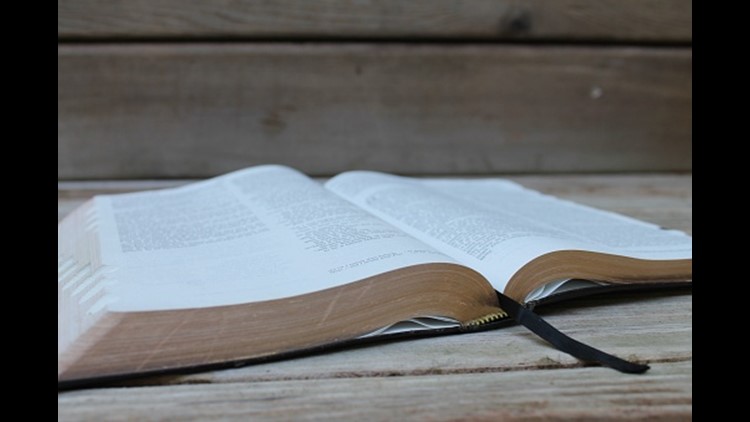Hudsonville Public Schools ended a teacher-led Bible study that was being conducted during school hours at Alward Elementary School.
The Michigan Association of Civil Rights Activists (MACRA) acted on complaints from parents and they reached out to the district urging them to stop the Bible study.
According to parents, 5th grade teacher, Christopher Karel was leading students in weekly Bible studies during school hours -- every Friday during lunch period. Students attending the Bible study would bring their food to Karel's classroom where he would read a Bible verse, tell a story or show a video and lead students in prayer.
According to a release from the MACRA, the activity was being conducted without parental notification or consent.
One parent told the civil rights organization that their 10-year-old child was subjected to peer pressure for declining to attend the Bible studies, which MACRA alleges is discriminatory behavior that violates district policy.
Hudsonville Public Schools responded to MACRA's media release. Scott Smith, the Assistant Superintendent for Human Resources at the district said they were informed about the "Bible-based discussion," and they verified the details of the report.
"The teacher (who thought the Bible discussion was appropriate because it was during lunch and voluntary) immediately put an end to these lunch meetings," said Smith. The district will continue to educate staff about the policies related to religion in schools.
Public schools are bound by the Constitution, which enforces a separation of church and state. However, there are few laws concerning religion and schools--most decisions are based on precedents set by previous cases.
According to the ACLU, teachers are prohibited from "encouraging or soliciting student religious or anti-religious activity. Similarly, when acting in their official capacities, teachers may not engage in religious activities with their students."
The exception to this says that teachers can engage in private religious activity in faculty lounges.
Despite those prohibitions, students are allowed to engage in religious activities on campuses, but it must be in "non-instructional time," which is before and after school hours.
The Equal Access Act was adopted by Congress in 1984. This law says that student-initiated groups of any kind are allowed to be held in public schools as long as school personnel are not initiating or promoting the meetings.
The EAA was developed so that student groups of any kind would have access to school facilities. However, this Act and all its provisions, only apply to secondary schools. There is not a clear precedent for elementary schools.
►Make it easy to keep up to date with more stories like this. Download the WZZM 13 app now.
Have a news tip? Email news@wzzm13.com, visit our Facebook page or Twitter.



